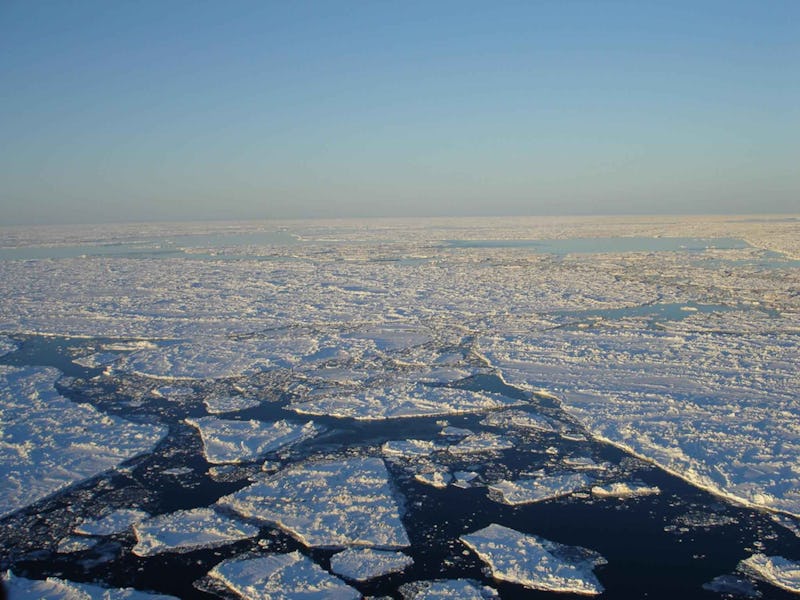Long-lost landscapes, frozen for 40,000 years, exposed by melting Arctic ice
Parts of Baffin Island haven't seen the light of day for millennia -- but that's rapidly changing.

When the surface of Baffin Island last saw the Sun, it was in the middle of the last glacial period. Neanderthals had just died out. Humans were getting into hunting wooly mammoths. And slowly, ice spread across the island, covering ancient plants and enshrining them in the frozen layer.
But their petrification has proven to be impermanent. A millennia later, those plants are finally seeing the light of day once again, as Inverse reported in January 2019. A study published that month in Nature Communications describes what the emerging landscape looks like now — and what it means for the rest of the world.
This is #16 on Inverse’s 20 most incredible stories about our planet from 2019.
Once-frozen regions are now peppered with “pockets of life,” lead researcher Simon Pendleton told Inverse at the time. Mosses and lichens are beginning to revive in the area — but it’s still barren for the most part.
The rooted plants, still in their original positions, gave researchers clues as to when they were last exposed. Using radiocarbon dating, the researchers found that Baffin Island’s glaciers haven’t shrunk to the size they are today for 40,000 years.
“Knowing that these landscapes haven’t seen the light of day in at least the past 40,000 years does leave one with a profound sense of awe,” Pendleton said.
Preserved tundra landscapes are like natural archives of past glacier activity. As these pockets of life emerge once more, they could reveal how the region responded to climate change in the past. As humans come to terms with today’s rapidly changing climate, this information underscores the gravity of our current situation.
Ice cores taken from Baffin and Greenland reveal that temperatures this century are the warmest the region has seen in the past 115,000 years. That means that the “human impact on the modern climate is unprecedented over the past 115,000 years as well,” Pendleton said. At this rate, he said, Baffin could be ice-free within the next few centuries.
As 2019 draws to a close, Inverse is revisiting the year’s 20 most incredible stories about our planet. Some are gross, some are fascinating, and others truly are incredible. This has been #16. Read the original article here.